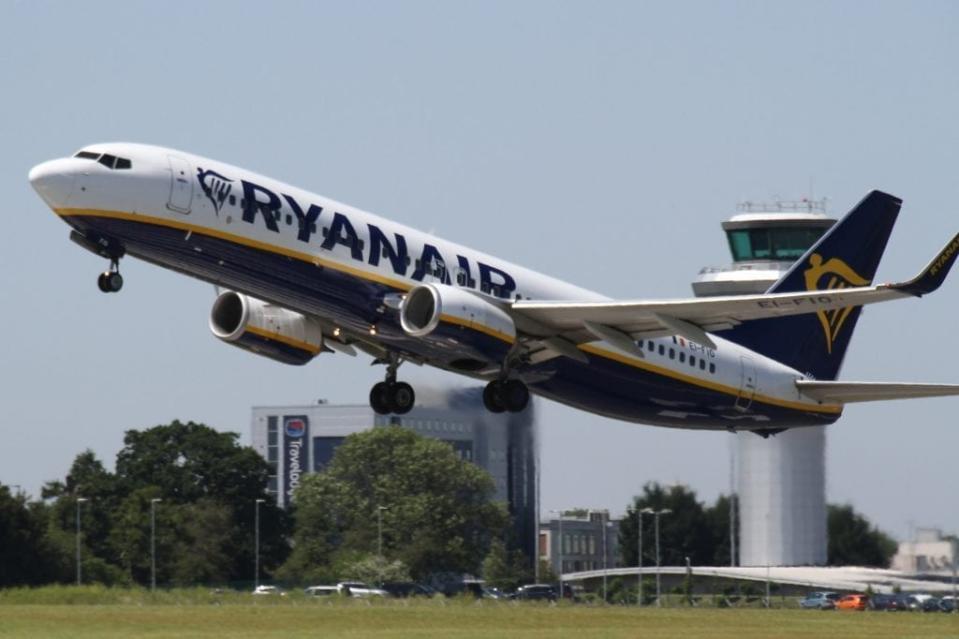Ryanair CEO: ‘No Justification’ for More Environmental Taxes on Air Travel

While Ryanair and other airlines have recently found the time to talk up their supposed environmental credentials, they are less keen to support an increase in taxation to deal with climate change.
France is bringing in a new levy and Germany is planning its own changes. At the same time aviation in general is facing increased scrutiny from consumers with the flight-shaming gaining traction in Northern Europe — although its impact might be limited at the moment.
To try and head off any further regulatory meddling, airlines are trumpeting their eco credentials. Ryanair, announced a new company environmental policy at its September AGM with plans to be plastic free in five years and cut CO₂ emissions by a further 10 percent by 2030.
“There is no justification for further eco taxes on air travel. We, as an airline, this year will pay €630 million in eco taxes in the UK, Germany, ETS [EU Emissions Trading System] in Europe. The cost of ETS is rising rapidly. This is a tax on low-fare air travel,” O’Leary said.
Ryanair — unsurprisingly as a low-cost point-to-point carrier — is keen to point the finger at its hub-focused legacy rivals who use multiple flights to fly people to their destinations. O’Leary also said that the airline industry needed to band together to highlight the impact of other forms of transport, e.g. maritime transport.
O’Leary’s anger is slightly disingenuous given many of these charges are passed on to the consumer. There’s also the problem at looking what airlines contribute to climate change now and what they are likely to do in the future.
Aviation might only contribute 2.4 percent of emissions now but that figure is going to rise for a couple of reasons, more people are going to fly in the future especially in Asia and there is still no prospect of airlines using anything other than fossil fuel to power planes.
Reductions are going to come from efficiency improvements and offsets or as Skift Senior Aviation Business Editor, Brian Sumers, wrote: “For now, the best way to reduce emissions probably is to fly less. But airlines must grow to survive, so few will voluntarily shrink.”
Max Update
Ryanair still has limited visibility on the return of Boeing’s grounded 737 Max aircraft — following two fatal crashes — and keeps cutting the number it expects to welcome into its fleet next summer.
“We now expect to take just 20 aircraft instead of the original 30 aircraft we were predicting three months ago,” O’Leary said.
This number could fall as low as zero if the planes aren’t cleared for flying sooner.
Uncertainty still surrounding the return of the Max is an undoubted negative for Ryanair but other external factors are providing something of an upside.
Smaller airlines are going out of business or are being bought by larger players, which puts less pressure on the rest of the market as capacity growth is moderated.
In recent months, Thomas Cook has gone into — although some of its airlines have survived —and on the same day as Ryanair’s results announcement, British Airways parent company IAG announced it had agreed to buy Spanish airline Air Europa.
“We would certainly be supportive of that type of consolidation. It’s what needs to happen in Europe,” O’Leary said, although if the deal goes through he wants some divestments, “particularly the Air Europa short-haul presence of some of the Spanish domestics and the European short-haul.”
Ryanair’s pre-tax profit for the six months to the end of September stayed pretty much flat compared with the previous year at $ 1.4 billion (€1.3 billion) with revenue up 11 percent $6 billion (€5.4 billion).
Subscribe to Skift newsletters covering the business of travel, restaurants, and wellness.

 Yahoo Finance
Yahoo Finance 